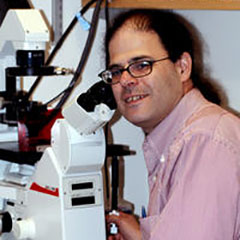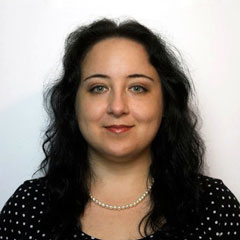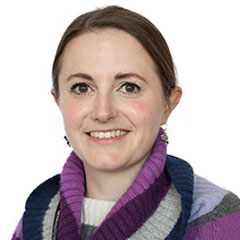Fungal Pathogen Genomics
7–12 May 2019
Wellcome Genome Campus, UK
Hands-on training in web-based data-mining resources for fungal genomes.
Summary
The kingdom of Fungi includes a biologically diverse group of organisms adapted to diverse environmental niches, playing important roles in ecosystems and human/animal/plant health. Fusarium, Magnaporthe, Ustilago, Puccinia, and Zymoseptoria species threaten agricultural ecosystems and food security worldwide, while Aspergillus, Candida, Coccidioides, Cryptococcus, Histoplasma, Pneumocystis, Batrachochytrium and other human and animal fungal pathogens cause allergies, serious illnesses, and sometimes life-threatening infections that are of great concern for veterinary and medical professionals arounds the world. Furthermore, fungi are also important model systems for basic and applied research and workhorses in biotechnology, food, pharmaceutical, and biofuel industries.
Advancements in high throughput ‘omics’ data generation technologies enable researchers to carry out large-scale analyses to investigate genomes, transcriptomes, proteomes, and metabolomes of numerous fungal organisms to address questions about pathogenicity, host-pathogen interactions, and identify new drug targets. To facilitate accessibility and analysis, a number of online fungal bioinformatic resources have been developed.
This week-long course is a collaborative teaching effort between the web-based fungal data mining resources:
The Fungal Pathogen Genomics course provides hands-on training on how to take advantage of unique tools offered by each database; develop testable hypotheses, and investigate transcriptomics, proteomics and genomics datasets across multiple databases and different user interfaces.
Daily activities at the workshop will include individual and group hands-on training exercises, supplementary lectures on bioinformatic techniques and tools used by various databases, and presentations by distinguished guest speakers. For example, you will learn how to:
- Perform RNA-seq and SNP analysis and visualization via EuPathDB Galaxy workspace in FungiDB
- Identify secondary metabolite clusters in MycoCosm
- Find virulence genes and annotation in Ensembl
- Access genetic interactions in CGD/SGD
- Discover taxonomic conservation or phenotypes in PomBase
Programme
The course programme will include lectures, discussions and practical, computer-based sessions consisting of hands-on exercises covering the following topics:
- Comparative genomics and browsers: GBrowse, JBrowse, ACT, Artemis, Ensembl
- Use of Apollo annotation tools for fungal genomes
- Web-based resources for fungal genomic data including: FungiDB, EnsemblFungi, PomBase, SGD/CGD, MycoCosm/JGI, etc.
- Identification of orthologs, and orthology-based inference (using OrthoMCL, Compara, etc.)
- Next generation sequence analysis, including variant calling (EuPathDB Galaxy)
- RNA-Seq analysis and visualization
- Developing advanced biologically relevant queries, using FungiDB ‘search strategies’
- Best practices using ontologies to generate hypotheses and analyse data (ontology structure, evidence, available tools, slimming and enrichment, etc.)
What’s not covered:
This course provides intensive training in web-based fungal resources using public datasets. The course does not include training in command-line data manipulation or analysis.
Learning outcomes
After attending this course, participants should be able to:
- Navigate effectively within each database and answer biologically-related research questions by creating custom queries across multiple fungal resources
- Use built-in web-based bioinformatics tools to mine data (e.g. find DNA motifs using regular expressions, identify orthologs in other species via orthologous transformations, determine trends via GO and metabolic pathways enrichment analysis, visualize genomics, proteomics, and transcriptomics data and NGS analysis results from EuPathDB Galaxy in a genome browser, export and share analysis results, and more).
- Contribute to community annotation and curatorial efforts
- Understand the advantages and limitations of the tools used
Instructors and speakers
Course instructors

David Roos
University of Pennsylvania, USA

Nishadi De Silva
EMBL-EBI, UK

Omar Harb
University of Pennsylvania, USA

Evelina Basenko
University of Liverpool, UK

Sajeet Haridas
Joint Genome Institute, USA

Kevin MacPherson
CGD/SGD, Stanford University, USA

Antonia Lock
PomBase, University College London, UK

Emily Perry
EMBL-EBI, UK

Erin Haskell
EMBL-EBI, UK
Guest speakers

Nick Talbot
The Sainsbury Laboratory, UK
Nadia Ponts
INRA, France
How to apply
Prerequisites
Applicants should be graduate students, postdocs, clinicians/healthcare professionals and lab heads working on fungal organisms.
How to Apply
Please complete the online application form. Places are limited and will be awarded on merit. If you have any problems with the online application process, please contact us.
Please note: Applications must be supported by a recommendation from a scientific or clinical sponsor (e.g. supervisor, line manager or head of department). A request for a supporting statement will be sent to your nominated sponsor automatically during the application process. Applicants must ensure that their sponsor provides this supporting statement by the application deadline. Applications without a supporting statement cannot be considered.
Deadline for applications: 7 February 2019
Travel visas
Successful applicants will be provided with a support letter for their visa application, if required.
Please visit the following websites for further information on visiting the UK:
Cost
| Cost | Accommodation / meals | |
| *Course fee | £650 | This is a residential course and the fee includes all accommodation and meals. |
*The course fee is subsidised by Wellcome Genome Campus Advanced Courses and Scientific Conferences and applies to non-commercial applicants. Please contact us for the commercial fee.
Bursaries
Limited bursaries are available (up to 50% reduction on the course fee) and are awarded on merit. If you would like to apply for a bursary, please complete the bursary section of the online application form.
Where there are many bursary applications, the selection committee may issue smaller amounts.
Bursaries can be applied for as part of the course application form. Applicants will be notified of a bursary award along with their place on the course, usually within one month of the application deadline. The decision of the selection committee is final.
Please note that both the applicant and sponsor are required to provide a justification for the bursary as part of the application.
Accommodation services phishing scam – please be vigilant. More information.
Testimonials
Feedback from the 2018 course:
“Thanks to the organizers for a thoroughly great course. I thought the organization and course material was all very well thought out and the instructors were all highly effective teachers that made the material approachable and usable to a wide variety of scientific interests and backgrounds.”
“I commend the willingness of the Instructors to listen to and give attention to all the participants. I was in the dark concerning bioinformatics but now I have been enlightened and will definitely start carrying out queries with the databases.”
“Keep doing what you are doing, you completely changed my understanding about bioinformatics.”
“Many thanks – a very enjoyable course in a very beautiful location.”
“The course was fantastic and covered a great variety of topics I was interested in.”
“Fantastic course! Thank you so much for all of your time and energy :)”

